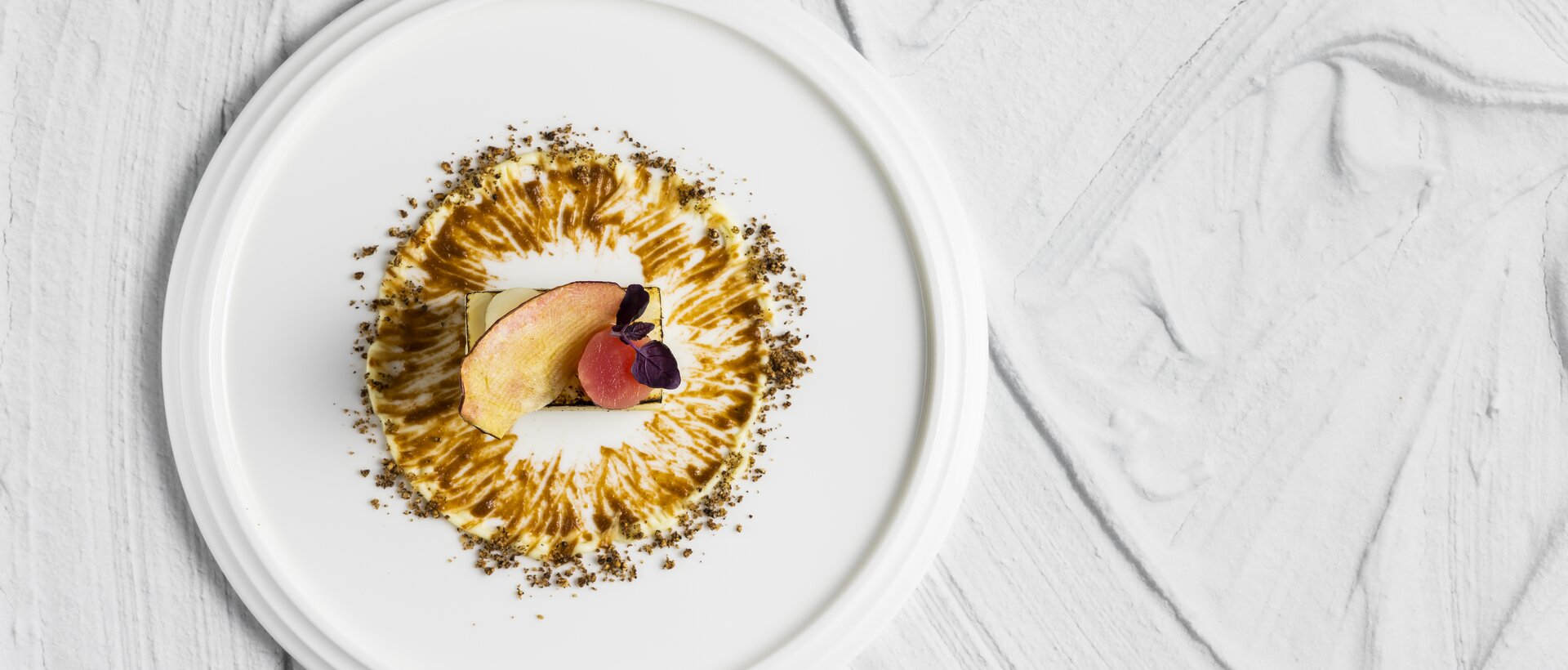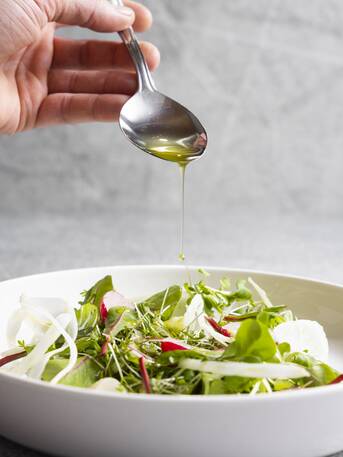Tips against inflammation & pain
Food against back pain? Works well! With these top tips from the Park Igls Health Centre Tyrol, the pioneers of Modern Mayr Medicine, you can prevent inflammation and pain.
Modern Mayr Medicine
Antibacterial diet
"Pain in the musculoskeletal system is in many cases related to inflammatory processes in the body. Unfortunately, we cannot eat ourselves pain-free. But there are foods that have an anti-inflammatory effect, nourish our supporting connective tissue and support bone and muscle function.
In this way we reduce the risk of osteoporosis and thus also of bone fractures, such as vertebral fractures, and consequently chronic back pain," knows Dr. Irene Brunhuber, specialist in internal medicine and former Mayr doctor at the Park Igls Medical Spa Resort.
Modern Mayr Medicine recommends
Food for back pain
Probiotics
I’m a great fan of probiotics. Intestinal biodiversity is crucial for gut health and nutrient absorption. Plus: they boost the production of happiness hormones! Find probiotics in fermented foods such as yoghurt, sauerkraut and kombucha or buy probiotic supplements if you prefer.
PLUS: The bacterial strains are involved in serotonin metabolism and thus influence the production of happiness hormones! So you eat twice as much to combat back pain.
Acid-base balance
A balanced acid-alkaline balance not only keeps the gut healthy, but also reduces the risk of inflammation. This means including alkaline sources such as vegetables, potatoes, fruit and herbs in your diet. Reduce cereals, meat and fish (with the exception of omega-3 acid sources). Avoid alcohol, sugar and coffee as much as possible when eating to combat back pain.
Foods rich in tryptophan, a precursor of the happiness hormone serotonin, lift the mood and reduce the perception of pain. Nuts, especially cashew nuts, seeds, bananas and dark chocolate contain the highest amounts.
Omega-3 fatty acids
Foods containing omega-3 fatty acids relieve back pain caused by inflammation. These are fatty fish such as salmon, herring and mackerel. High-quality oils with anti-inflammatory fatty acids include linseed oil, walnut oil, rapeseed oil and fish oil. One of the top tips when eating for back pain!
Calcium & magnesium
Calcium: Keep bones strong and resilient with a diet rich in hard cheeses, leafy vegetables and pulses. And avoid fast and convenience foods: these can contain high levels of phosphorus which dissolves calcium in bones.
Magnesium: Magic mineral magnesium is an allrounder and, unsurprisingly, it’s great for bone health too as it helps assimilate calcium into the bone and activates vitamin D. It also helps to lower the risk of osteoporosis in women after menopause.
Vitamins D, K, C
Vitamin D promotes the absorption of calcium from food in the intestine. It can be found in oily fish, dairy products, eggs and certain mushrooms such as porcini, morel and button mushrooms. However, vitamin D is metabolised in the body with the help of sunlight. In other words, if the skin is not exposed to sunlight, a vitamin D deficiency inevitably develops and calcium absorption in the intestine is also prevented.
Vitamin K forms proteins that we need for bone formation and bone strength. Green vegetables and salads contain the largest amount of this light-sensitive vitamin and should therefore be included in your diet to combat back pain. Please note: Store vitamin K-rich foods in a dark place!
Perhaps the most popular vitamin (C) is essential for back health, as it forms collagen and thus nourishes the supporting connective tissue. It is found in fruit, vegetables, especially cabbage and green vegetables, as well as in herbs.
Water, herbal teas & antioxidants
I cannot overemphasise the importance of fluid intake on all aspects of health, including our backs. Drink plenty of water and herbal teas to keep your spinal disks hydrated and your back supple.
Antioxidants are found in a wide range of delectable foods such as dark chocolate, blueberries, leafy greens and pulses. They reduce oxidative stress, which is associated with chronic inflammation in the body. Reducing inflammation has positive effects on back pain as well.
Eating to help with back pain doesn't just mean eating healthily, but also savoury, varied and fresh! You can find out more about nutrition according to Modern Mayr Cuisine here.





























